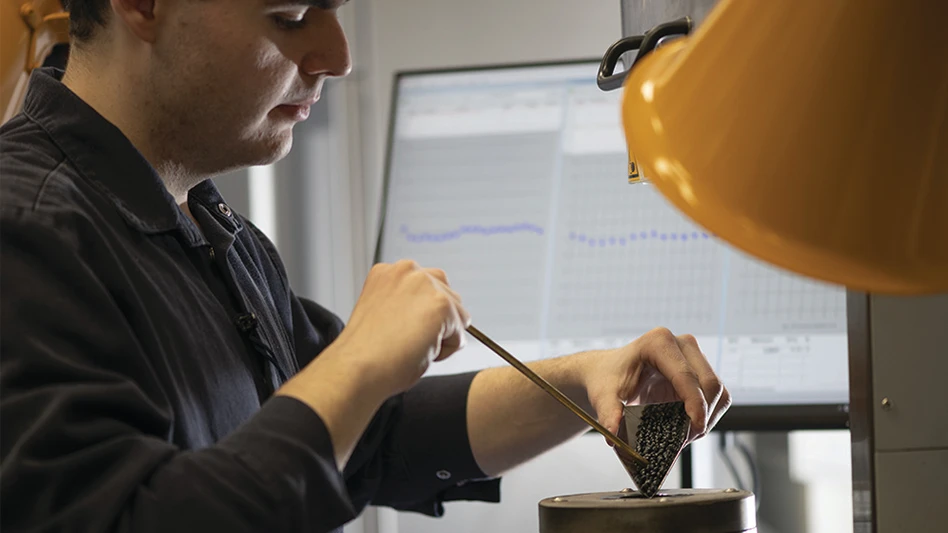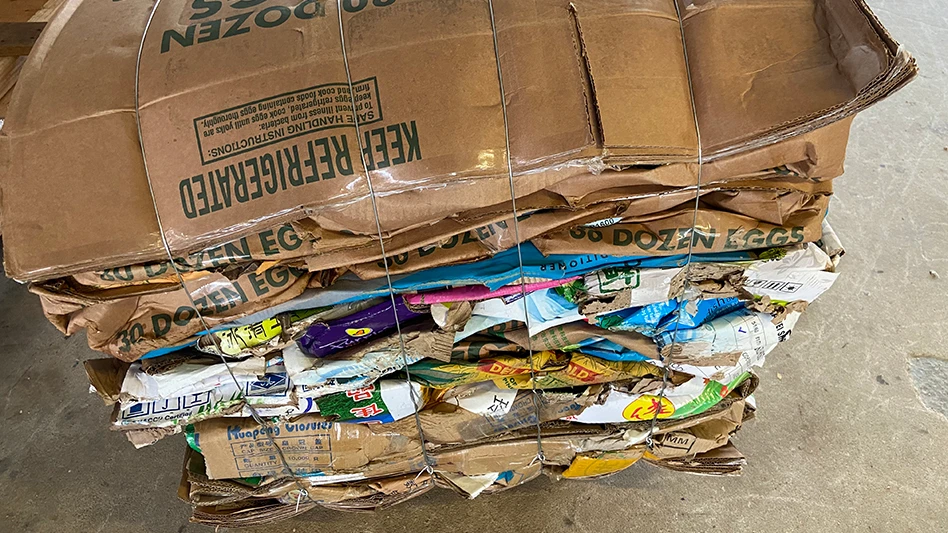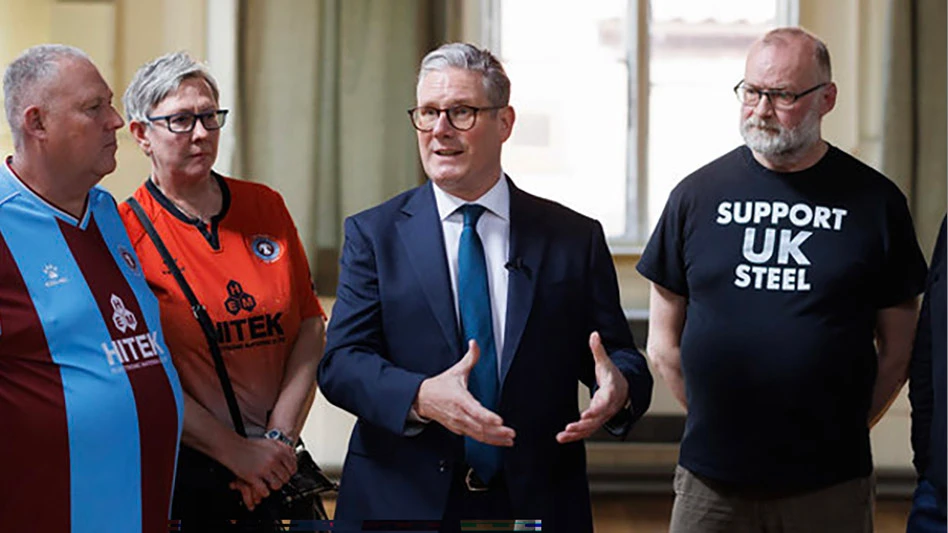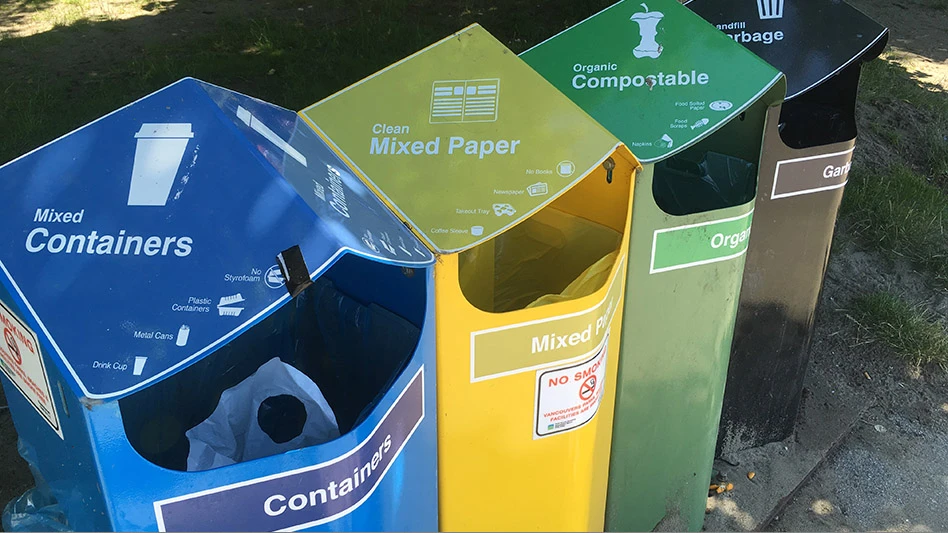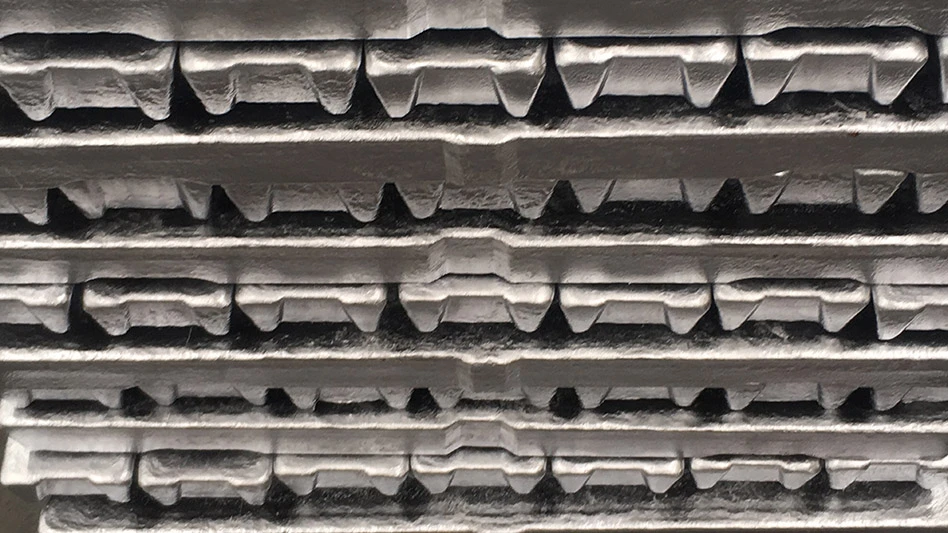
Increasingly, companies are finding ways to incorporate recycled content into their materials, including companies that develop virgin polymers and resins.
Recently, Avient found a way to transform old windshields into new plastic products with its new thermoplastic elastomer (TPE) pellet, while Saudi Basic Industries Corp. (SABIC) has released a polycarbonate (PC) resin as well as resin blends manufactured from postconsumer mixed plastics and three resins made from mechanically recycled plastics designed for automotive applications.
Avient

Avient, an Avon Lake, Ohio, company that offers a portfolio of polymers, colorants and additive products, has launched TPE formulations that contain 25 percent postconsumer content derived from automobile windshields and laminated architectural glass. The company is selling the new formulations as part of its reSound R recycled-content TPE portfolio.
Avient developed the new TPE materials in collaboration with Shark Solutions, a Danish company with operations in North America. Shark Solutions produces sustainable polyvinyl butyral (PVB) products from car windshields and laminated building glass. PVB, found in the inner layer of windshield glass, is reclaimed and reprocessed, after which it can be used as a raw material for polymers, including TPE.
An estimated 75 million broken windshields are replaced annually worldwide, which provides an abundant supply of thousands of tons of PVB, according to Avient. Those windshields often go to landfills.
Established in 2005, Shark Solutions operates in Denmark and Belgium and more recently expanded to North America with recycling operations in Atlanta and in Victorville, California, northeast of Los Angeles.
“It has taken many years to develop this technology,” says Jens Holmegaard, CEO of Shark Solutions. “We separate the PVB interlayer from the glass through a proprietary process and sell both fractions as recycled or upcycled raw materials for various commercial and industrial uses, such as glass being used as recycled raw material for commercial insulation. Mostly, we work with leading companies that are focused on creating a better environment and high-quality products. We don’t share many details on our processes.”
In the U.S., Shark Solutions works with a variety of suppliers, including auto-glass replacement companies, glass distributors, glass manufacturers, vehicle manufacturers, vehicle distributors, municipalities and end-of-life vehicle yards.
“Our mission is to create high-performance raw materials from a former waste stream of laminated glass, instead of allowing it to decompose in landfills over thousands of years,” Holmegaard says.
Avient’s “unique formulation expertise” allows the reprocessed, high-quality, nontoxic PVB to be upcycled into TPEs with excellent properties, the company says.
“This technology brings together advanced material science and innovation to support customers’ goals and the circular economy,” says Matt Mitchell, director of global marketing of specialty engineered materials at Avient. “These material developments create an opportunity to help divert mountains of valuable resources from the waste stream and upcycle them into new products that offer excellent performance and value.”
The TPEs have durometers from 45 Shore A to 55 Shore A, making them ideal for general-purpose applications in the consumer and automotive industries, according to the company. The performance properties are similar to traditional TPEs. They are injection moldable and can be overmolded onto polypropylene.
The TPEs are suitable for use in a variety of products, including personal care items, lawn and garden tools, golf clubs, footwear and automotive products for vibration dampening.
SABIC

Saudi Arabian petrochemical giant SABIC has introduced a PC resin and resin blends made from postconsumer mixed plastics.
SABIC says it is the first company to sell PC produced from postconsumer mixed plastic using chemical recycling. The company adds that an internal study showed the resin offers a potential carbon footprint reduction of up to 23 percent in comparison with PC produced using fossil feedstocks.
Separately, SABIC also has launched three resins produced using mechanically recycled plastics that are designed for automotive applications.
“In another significant contribution toward the development of a circular economy for plastics, we are proud to have developed a new solution that can help our customers meet their sustainability targets and generate value by increasing the amount of recycled postconsumer mixed plastic they process,” Abdullah S. Al-Otaibi, engineering thermoplastics and market solution general manager at SABIC, says. “SABIC is continuously broadening its sustainability offerings, and in ETP [engineering thermoplastics] specifically, new solutions in our polycarbonate portfolio to help support our customers’ increasing needs for circular content and CO2 reduction.”
The new recycled PC is part of the company’s Trucircle portfolio of what it calls circular solutions. The postconsumer mixed-plastic feedstock could otherwise have been destined for incineration or a landfill, according to the company.
“Advanced recycling helps to address the plastic waste that cannot be mechanically recycled for technical or economic reasons,” says Mark Vester, circular economy leader at SABIC. “Advanced recycling offers a potential solution for plastic waste that is either more contaminated or mixed and/or consists of multimaterials. Typically, these mixed-plastic streams reflect the types of plastics used in households or commercial activities and contain all sorts of plastics.”
SABIC’s technology involves pyrolysis. The mixed plastics are broken down into pyrolysis oil, which is used as a feedstock to create building blocks for high-performance plastics with the same properties as virgin material, in this case PC, according to the company.
“Pyrolysis is a recycling technology where the long polymer chains are broken down into short hydrocarbons in absence of oxygen and at higher temperature conditions,” Vester says. “Potential contaminants are isolated and removed. The produced oil reenters the chemical production chain at the refinery or cracker level as a secondary raw material, replacing virgin feedstock.”
The new resin—sold under its Lexan trademark—can replace virgin PC in electronics, automobiles, health-care products, consumer goods and in building and construction products.
It also is sold in blends, such as Cycoloy PC/acrylonitrile butadiene styrene, Valox PC/polybutylene terephthalate and Xenoy PC/polyethylene terephthalate (PET).
An independent third party has certified SABIC’s recycled-content PC under the International Sustainability and Carbon Certification (ISCC) Plus system, according to the company. The ISCC Plus accreditation provides traceability along SABIC’s supply chain from the feedstock to the final product.
The material is produced in Europe and can be shipped globally, Vester says.
The three new automotive resins also are part of the company’s Trucircle portfolio. They include a high-flow, talc-filled PP designated T2E-3320EH; a UV-stabilized PC/PET blend called Xenoy T2NX2500UV; and Xenoy T2NX5230, a mineral-filled PC/PET blend. They are the company’s first automotive grades containing mechanically recycled plastic. The resins feature recycled content levels of up to 29 percent and offer performance similar to virgin resins, SABIC says.
“The new Trucircle materials support the automotive industry’s sustainability initiatives by providing an opportunity to extend the life of plastic waste and helping to increase the value from postconsumer products,” Al-Otaibi says. “These new products are the first of many SABIC resins to be introduced with mechanically recycled content for potential use in interior and exterior automotive applications.”
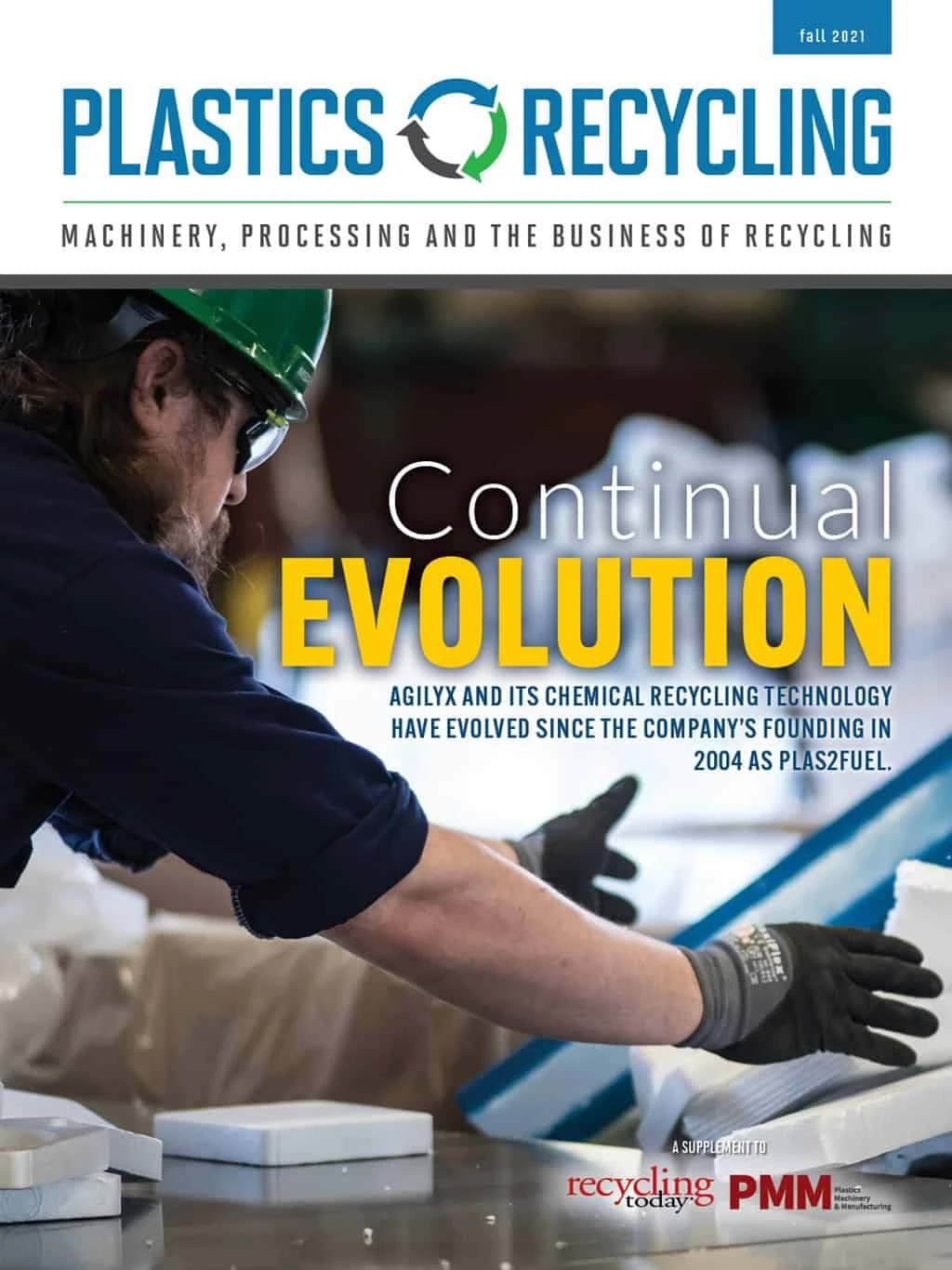
Explore the Fall 2021 Plastics Recycling Issue
Check out more from this issue and find your next story to read.
Latest from Recycling Today
- Acerinox names new North American Stainless CEO
- Greenwave closes 2024 books with red ink
- Steel Dynamics nets $217M on record shipments
- Massive Chinese steelmaking rebound recorded in March
- LME looks into sustainable metal pricing
- OnePlanet Solar Recycling closes $7M seed financing round
- AMCS launches AMCS Platform Spring 2025 update
- Cyclic Materials to build rare earth recycling facility in Mesa, Arizona
